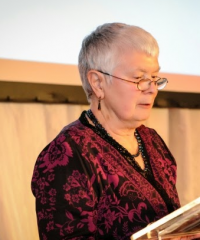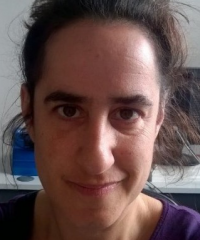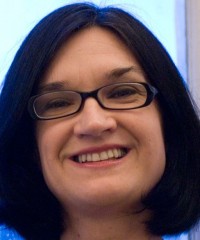
Dilys Cossey

A leading campaigner for abortion, birth control and reproductive rights Dilys was a key member of the Abortion Law Reform Association (ALRA), who lead the calls for the 1967 Abortion Act and made this revolution in women’s reproductive rights possible. Following her role as Secretary of ALRA Dilys went on to be General Secretary of the Birth Control Campaign where she campaigned for free contraception on the NHS. Dilys made many more contributions to the development of reproductive rights through her involvements with IPPF, FPA, Brook and IPAS making her an invaluable Champion of Choice.
Lisa Hallgarten

Lisa is a leading campaigner for women’s reproductive rights and her role as Chair of Voice for Choice means that she works tirelessly to ensure that women have choice on abortion. Lisa has fought hard over the years to protect and extend abortion rights in the United Kingdom and over many years at Education for Choice she advocated for young peoples’ sexual and reproductive health and rights. Lisa’s lasting commitment to women’s reproductive autonomy makes her a vital Champion of Choice.
Sarah Norcross

Sarah is co-chair of the campaigning organisation Fertility Fairness where she campaigns for people to have comprehensive and equal access to a full range of appropriate NHS investigations and treatments for infertility; this includes the right to access up to three full cycles of IVF treatment free on the NHS. In her role as Director of the Progress Educational Trust, Sarah chaired and drove a group of clinicians, patient support groups, scientists and medical research charities which fed into important policy for the Human Fertilisation and Embryology ACT 2008 as it passed through both Houses of Parliament. Sarah’s instrumental work at Fertility Fairness and policy work at the Progress Educational Trust make her an invaluable Champion of Choice for equitable access to fertility treatment.
June
Under-16s can now buy EC – imminent collapse of society predicted
The recent decision to allow under-16s to purchase Ella One (the emergency contraceptive pill that works up to 120 hours after sex) unsurprisingly caused a bit of an uproar. Health Secretary Jeremy Hunt MP said he was “uncomfortable” with the idea and the Family Education Trust criticised the decision stating it will “encourage adolescents to engage in casual sex” despite a complete lack of evidence whatsoever that this would be the case (although why let that get in the way of some good hang-wringing?) While the FET and others believe teens will be popping EC like Smarties, the extortionately high-cost (£35-40) and stigmatising pharmacy consultation will still act as a barrier to access, as Rhiannon Lucy Cosslett argued in the Guardian. Until we lower the price and put emergency contraception on the shelf, many women of all ages will continue to find it difficult to access this perfectly safe method of contraception.
Another new round of guidance on alcohol during pregnancy
In an attempt to make government guidance less confusing for pregnant women, the BMA has, well, added to the confusion by stating that pregnant women should be advised to abstain completely from drinking (alcohol, not water. Although expect guidance on number of units of fruit squash per week shortly.) The BMA also said women needed “more explicit” warnings on alcohol labels. The idea that women should be told to abstain is based in part on the rather patronising assumption that women can’t understand what “moderate” levels of drinking are, which, as Dr Pat O’Brien of the RCOG says, is simply not the case. Worryingly, the end result of all this scaremongering is needless guilt and worry that lasts even beyond the nine months of pregnancy, as new mother Robyn Wilder explained in her piece for The Pool. So we agree with Ella Wheelan – we need to fight back against the constant policing of pregnant women’s behaviours, and trust women with the evidence to make their own choices.
MPs call for abortion clinic buffer zones as harassment prosecution of anti-abortion protester is overturned
Following the news that an abortion clinic is to close as a direct result of protest activity – a first in the UK – Diane Abbott MP and Caroline Lucas MP have taken up the fight for abortion clinic buffer zones in parliament, calling on the government to introduce legislation to enable protesters to be moved away from the clinic doors. The Home Office continues to insist that police have the powers to deal with the protesters, yet the decision on Monday 29th June to overturn a conviction for harassment of an anti-abortion protester in Belfast suggests otherwise. During a campaign of intimidation, Dawn Purvis, Marie Stopes Belfast clinic manager, was followed when leaving the clinic with her son and was told by anti-abortion campaigner Bernadette Smyth “You ain’t seen harassment yet, darling.” When anti-abortion protesters are legally allowed to follow and intimidate women and clinic staff, it’s clear that our current laws are not fit to deal with this growing problem. If you haven’t done so already, please email your MP asking them to support the buffer zones campaign.
To freeze or not to freeze (your eggs when you’re thirty, that is)
Over the last month, we were treated to separate “fertility timebomb” front pages with the combined message of: women – procreate or freeze those eggs before you’re 30 or else. The Mail on Sunday reported that a fertility specialist has warned many women are walking blindly into infertility and needed to be advised to try to start trying for children in their twenties, while the Telegraph managed to slightly misrepresent a study on IVF to suggest that women face a “fertility cliff edge” at 35 and so should freeze their eggs before this age . Needless to say, in both these instances the science was side-lined in search of a dramatic headline. As the New Statesman reported, women have a very good chance of conceiving and having a healthy pregnancy throughout their thirties. Women are acutely aware of their fertility and there are completely understandable reasons why many may decide to have children later in life. They might not have met the right person, they might want to own a home that isn’t the size of a garden shed, they might want to have one of those career things men seem to enjoy so much (this news round-up may be written by a single, childless woman in her late twenties with a grudge to bear.) So less of the haranguing, please. Thanks.
Northern Irish women ‘hand themselves in’ to the police over abortion prosecution
Over 200 incredibly brave abortion rights activists in Northern Ireland effectively handed themselves in to the police to challenge what Amnesty describes as the country’s draconian abortion laws. The action follows the decision to prosecute a mother who bought abortion medication online for her very young daughter who was facing an unwanted pregnancy. 214 activists signed the letter published in a Belfast newspaper admitting to either the consumption of abortion pills, or assisting women in the procurement of an abortion and asking to be arrested – both crimes which carry lengthy prison sentences. We applaud this courageous action, and are proud to have these activists as our Champions of Choice. Northern Ireland’s abortion law makes criminals out of innocent women for simply trying to access essential healthcare. We hope that this will spark the debate and change women of Northern Ireland so desperately need.
Erika Garratt, activist and campaigner: Anti-Abortion Clinic Protests Are Eroding Women’s Right To Choose
Erika Garratt is a pro-choice activist who launched the Change.org petition for abortion clinic buffer zones which she presented to 10 Downing Street in March 2015. You can still sign the petition online here.
I decided to start the petition, calling on the Home Office to create buffer zones around abortion clinics, after watching a YouTube video featuring a woman confronting anti-abortion protestors. The video made me incredibly angry that women trying to access abortion services were being harassed and vilified for doing nothing other than making a decision about what happens to their body. It is fair to say that I am passionate about women’s rights and for women to have bodily autonomy.
Many have told me that my petition is restricting freedom of speech. This isn’t about banning protests, just moving them to a safe distance away from women accessing the clinics. If these protests are about educating women about abortion (which I find to be an incredibly patronising reason) and not to intimidate, then I cannot see why a legal buffer zone would be an issue for them. Westminster have a buffer zone for their MPs and laboratories conducting animal testing were allowed zones preventing protestors from getting close. It is shameful that women needing medical advice and care are not extended the same right to privacy and safety.
I was amazed that the police said that there’s nothing that they can do to remove the protestors. That is why I believe that a change in the law is required and that is why this petition is so important. Clinic staff and their clients would be able to have protestors removed in an instant. The government cannot keep telling us that the law is adequate whilst these protests continue. It is more than disappointing that I (and Bpas) have had such a poor response from the Home Office after presenting the petition to No.10 Downing Street. I will continue to push for a change in law in spite of their silence.
It is greatly concerning that a clinic has had to close due to the actions of protestors. This has led me to conclude that even a woman’s right to an abortion is slowly being eroded. The petition is now not just about securing buffer zones for safe access but buffer zones to prevent further closures. There is too much at stake. Protestors need to remember that abortion is legal in the UK. They may not agree with abortion but that does not mean they should be allowed to cause such distress to women who have decided to have an abortion.
When a woman chooses to end a pregnancy, may that always be without judgement for who are any of us to decide what is right for their lives?
Rebecca Schiller, Birthrights: Joining the Dots: From Childbirth to Abortion Rights
Rebecca Schiller is the Co-Chair of Birthrights, the UK’s only organisation dedicated to improving women’s experience of pregnancy and childbirth by promoting respect for human rights. Rebecca is also a registered birth doula and author of All That Matters: Women’s Rights In Childbirth.
Last year I was commission by the Guardian to write a short book about women’s rights in childbirth. When I signed off the last draft I had written something quite different. Discussing birth in a vacuum wasn’t robust enough. Women’s rights in birth are unbreakable linked to their wider reproductive rights and of course their human rights more broadly.
In my ‘day’ jobs as a doula and co-chair of Birthrights (the human rights in childbirth charity) the scrutiny and regulation of women’s choices in pregnancy is very evident. Their oftentimes dehumanising and traumatic experiences of childbirth are also all too real, despite the work of many dedicated and inspirational medical staff. It’s very clear that whether a woman wants an elective caesarean section or to avoid antenatal screening, plan a homebirth, use an epidural or a birth pool for pain relief she will often find barriers to making that important, individual decision. Censure may come from different sources but it’s rare to find a woman, whatever path she follows, who finds her pregnancy, birth or feeding decisions don’t lead to judgement or become part of the political to and fro.
Evidence-based information in pregnancy, along with individualised discussions, continuity of carer and compassionate support is what the majority of women I speak with ask for. Put simply to be treated kindly and like the rational adults they are. I have stopped buying in to the idea that women who make seemingly different decisions are in opposition and invite you to do the same. The media are all too keen to reinforce a belief in a polarised world of women at war with each other; selfish homebirthers in one camp and lazy caesarean requesters at the other. It’s unhelpful and untrue. All choices are valid and women who choose or need caesareans are often motivated by the very same desire for control, respectful care and privacy as those who wish to birth at home. It’s not the business of campaigners to judge them or to frame our arguments in a way that invites the judgement of others.
And it is not only the arguments within the pregnancy and birth arena that need their boundaries redefining and blurring. Looking at childbirth with a view to its impact on abortion rights, access to contraception and the wider work of feminists insisting that women are not treated as second class citizens, it’s clear to me that we need to join the dots to make progress.
As Lynn Paltrow (Executive Director of National Advocates for Pregnant Women) astutely pointed out to me, it is a woman’s basic capacity for pregnancy and birth that is used to restrict her broader choices. Whether or not childbirth is on her agenda, the fact she could give birth impacts on her on a daily basis. For me that’s a prime reason to get women’s rights in pregnancy and birth bumped up the agenda.
Perhaps even more compelling is the increasing use of punitive and restrictive measures against pregnant and birthing women (particularly in the US) to further the anti-abortion movement’s agenda. Deftly recognising a weak link in the defense of women’s rights, those who seek to prevent access to abortion are actively using pregnant and birthing women to do so.
There will always be the need to campaign for particular corners of women’s reproductive rights. But now is the time to stop thinking that pregnancy, childbirth and abortion rights are different. These are the same women, at different points in their lives, making individual decisions in a landscape that’s often hostile. We need to work together, across the reproductive spectrum and across our personal bias’ to join the dots and draw a robust plan for all women throughout their often-complex reproductive journeys.
Jane Fisher, ARC: We need to trust – and support – women’s individual choices in pregnancy.
Jane Fisher is the Director of Antenatal Results and Choices, ARC.
I feel privileged to have been working for ARC since 2001. And while I am very grateful to bpas for nominating me as a ‘champion of choice’ I have to say at the outset that I couldn’t do what I do without the support and commitment of our small but dedicated staff team. For those who don’t know us, ARC is a UK-wide charity providing non-directive information and support to parents throughout prenatal testing and its consequences. We also work closely and collaboratively with health care professionals and policy makers to promote high quality care in what are often challenging circumstances.
Most expectant parents opt for antenatal screening tests hoping to be reassured – and thankfully the vast majority will be. They are aware that problems can occur but this is rarely at the forefront of their thinking as they gaze at scan images full of hope and expectation. So when they learn that their baby is not developing as expected the shock and grief is immense. At this point many parents contact ARC, struggling to process the news and to understand what the outcome might mean for them. Our job is to ensure they have the information they need and a safe space to work out a way forward in the pregnancy that is individually right for them
When a diagnosis of fetal anomaly is made, some parents will decide quickly what they need to do; others will vacillate for some time. All know it is a life-changing decision.
For women who decide to end their pregnancy it is important that they have a choice in how the termination procedure itself is managed. They know what they feel best able to cope with, physically and psychologically. However, the reality is that access to surgical termination is limited in most NHS hospitals after 13 weeks’ gestation. This means the independent sector has an important role in providing options for women. It has been great to work with staff at bpas to help improve the care they can provide women attending clinics for termination for fetal anomaly.
Overall, my experience at ARC has taught me just how crucial it is that we continue to support women’s individual choices in pregnancy. I shall continue to do all I can because I know that we can trust women to make responsible decisions, even in the most traumatic and emotionally charged situations.
Dr Manjeet Shehmar
Dr Manjeet Shehmar nominated by @quizicist
I would like to nominate Dr Manjeet Shehmar, obstetrician at Birmingham Women’s Hospital, as a Champion of Choice. She is the instigator of the ground breaking and nationally leading Hyperemesis Gravidarum day unit. This is an absolute lifeline to women suffering from the incessant and life sapping symptoms of Hyperemesis. Without good quality treatment, many women are forced to terminate their very much wanted pregnancies. This clinic offers women the respite within which they can make a true choice about whether to continue the pregnancy or not.
Dr Helen Pickup

Dr Helen Pickup nominated by Fiona Kiernan-Tatem
I would like to nominate Dr Helen Pickup for a champion in Hyperemesis Gravidarum (HG). She is now based at the Orchard Partnership in Salisbury, formerly of Harcourt Medical Centre (where she treated me for HG ). She suffered Hg with both her pregnancies so immediately was on the case to get me help. I had real issues with the midwife and Dr Pickup was so quick to raise awareness and give them feedback on care/approach etc.
